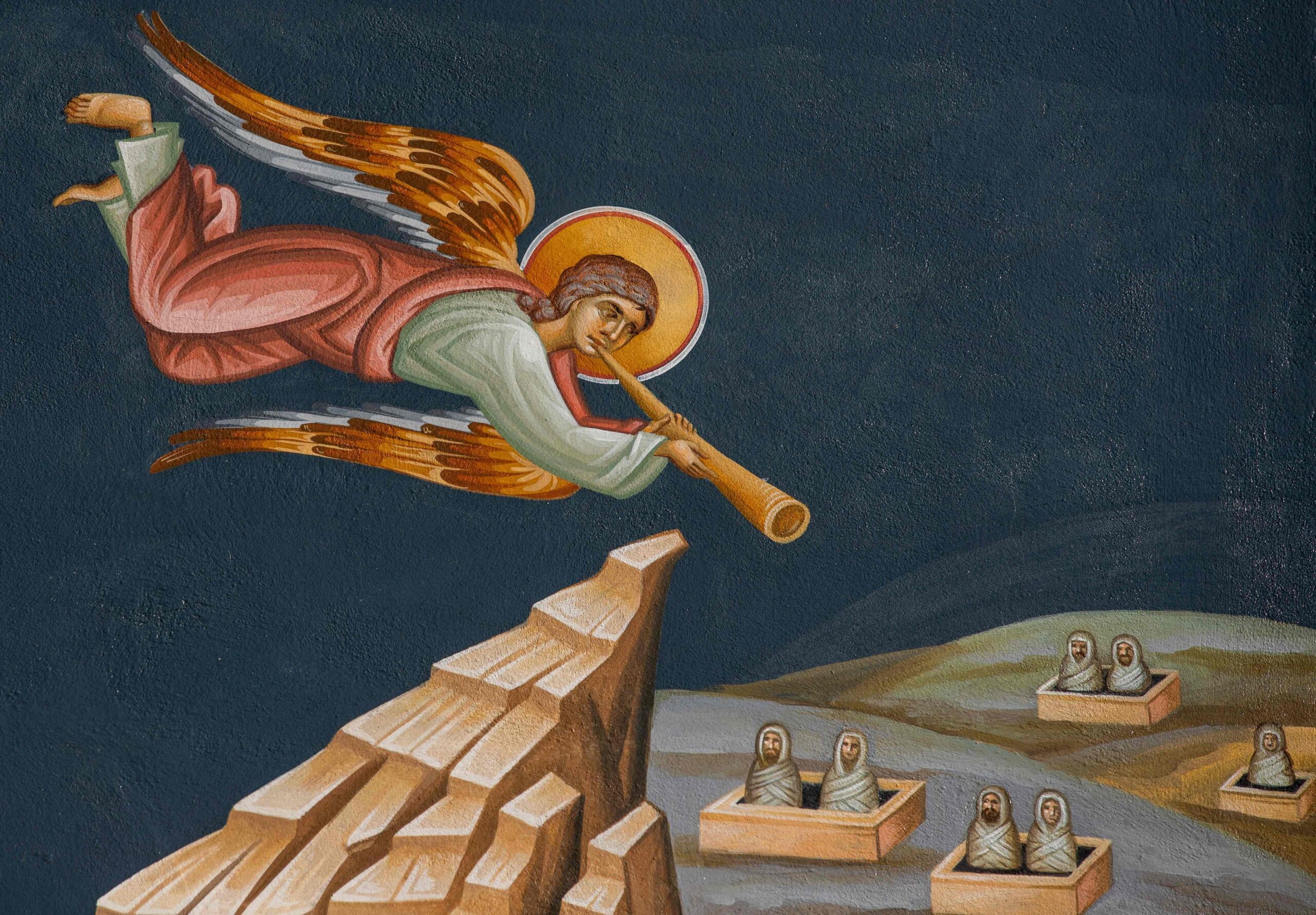
Read: Leviticus 8:30-36
You shall remain at the entrance of the tent of meeting day and night for seven kays, keeping the LORD’s charge to that you do not die; for so I am commanded (Leviticus 8:35, NRSV).
Sing (or don’t): “A Charge to Keep I Have” by Charles Wesley (1762) BOYLSTON
1 A charge to keep I have,
a God to glorify,
a never-dying soul to save,
and fit it for the sky.
2 To serve the present age,
my calling to fulfill,
O may it all my pow’rs engage
to do my Master’s will!
3 Arm me with watchful care
as in Thy sight to live,
and now Thy servant, Lord, prepare
a strict account to give!
4 Help me to watch and pray,
and still on Thee rely,
O let me not my trust betray,
but press to realms on high.
At first glance, this hymn text is an inspirational reminder to take one’s Christian responsibility seriously. Indeed, Charles Wesley’s prayer for God to help him “serve the present age—my calling to fulfill” seems spot on for contemporary Christians trying to figure out how to navigate uncertain times.
“What’s so heretical about that?” you may be asking.
There’s nothing inherently heretical—or even problematic—about this hymn’s basic premise: that Christians ought to walk their talk, and that they need God’s help to do so. But embedded in this prayer is an insidious assumption that comes to us not by way of Scripture, but by way of Greek dualism. I’m talking about the phrase, “a never-dying soul to save.”
If you are a regular reader of this blog, you’ll know I have a bone to pick with the body/soul split that is so ubiquitous in popular Christian theology. In the Old Testament, human beings are created as living “beings” (Genesis 2:7). The Hebrew word behind this is nephesh. In spite of how this word is usually translated, it does not mean “soul.” Rather, it refers to the totality of who we are as human beings—physical, spiritual, emotional, and psychological. So, it’s not so much that humans have a soul as that they are a soul. Just remember that if you insist on using that word, you have to shake the dust of dualism off your feet.
Interestingly, animals are also described with the same word (Genesis 2:19). So, the difference between humans and animals is not that one “has a soul” and the other does not. It’s that humans are “made in the image of God” (Genesis 1:26). If you’re thinking that this is very good news for whether you will be reunited with your pets in heaven—you would be right!
But I digress. Looking back at the hymn lyric in verse one, the dualistic assumptions are pretty obvious. In Charles Wesley’s defense, he was relying generally on widely held assumptions. He was also relying more specifically on Matthew Henry’s 1706 commentary on Leviticus 8:31-36 (a passage about the ordination of priests). It reads:
We have every one of us a charge to keep, an eternal God to glorify, an immortal soul to provide for, needful duty to be done, our generation to serve; and it must be our daily care to keep this charge, for it is the charge of the Lord our Master, who will shortly call us to an account about it, and it is at our peril if we neglect it. Keep it ‘that ye die not’; it is death, eternal death, to betray the trust we are charged with.
Nevertheless, two wrongs don’t make a right. Two can stray into the heretical ditch as easily as one.
“Why should we care?” you may well be asking.
There’s a clue to this in the very phrasing of the line in question. Did you notice the agency that’s assumed there? “A never-dying soul to save,” it says. Not only is this thing called a “soul” never-dying, but it seems to be our human responsibility to save it.
Take a closer look at the Apostles’ Creed. Notice what Christians have been claiming to believe since the second century. “I believe in the resurrection of the body,” we affirm. We don’t confess that our immortal souls will fly off under their own speed off to be with God when we die. The resurrection of the body (think nephesh) is something that God will accomplish for us through the saving death and resurrection of Jesus Christ on the last day.
I will now get off my high horse—at least until next time.
Ponder this quote from Frederick Buechner:
Man does not go on living beyond the grave because that’s how he is made. Rather, he goes to his grave as dead as a doornail and is given his life back again by God (i.e., resurrected) just as he was given it by God in the first place, because that is the way God is made.
See the full quote and references here: Immortality
Pray: Help us to take our Christian witness seriously as we await the resurrection of our bodies.
Note: This is the first installment of a new series called: Heretical Hymns

You’re probably familiar with the saying, “You are what you eat.” It’s one of those realities that is so obvious we often overlook it. Yet, once it’s pointed out, we’ll never be able to “un-know” it. Every trip through the fast-food drive-through becomes an ominous glimpse in the mirror.
The ecclesiastical version of this saying is lex orandi, lex credendi. Briefly translated, it points out that worship shapes belief.
When I first heard this news bulletin, it struck me as counter intuitive. Surely, I thought, it’s the other way around. Belief is what shapes our worship. Our hymns and prayers grow out of our beliefs.
The older I get, however, the more I understand the wisdom of lex orandi, lex credendi. The songs we sing in worship do shape what and how we believe. In a very real way, we believe what we sing.
In this series we’ll be taking a closer look at some of the hymns and songs that may be shaping our beliefs in unhealthy ways. Some are downright heretical; others are simply unhealthy. (Think of a spectrum with cigarettes on one end and French fries on the other.) There’s a very good chance you won’t agree with some of my choices. That’s fine. But if I’ve made you think about it, I will have accomplished my goal. All of us could stand to think about the fact that—theologically speaking—we believe what we sing.
Enjoy!
Carol Bechtel
Note: The title for this series was inspired by a sermon by Sarah Van Zetten Bruins. Sarah is wholly responsible for the title but should not be held responsible for the content.
